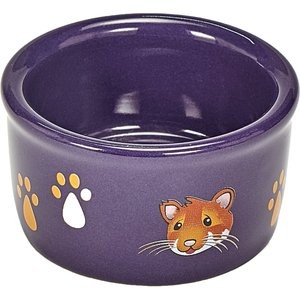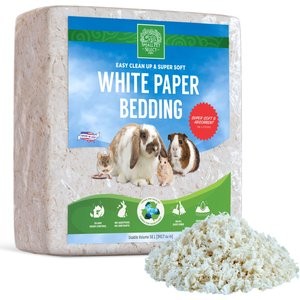How much for a hamster? Understanding the true cost of hamster ownership, from initial purchase to ongoing care, is crucial for responsible pet ownership. At HOW.EDU.VN, our expert team helps you navigate the expenses and ensure you’re prepared. Discover the costs associated with acquiring, housing, feeding, and caring for these delightful pets.
1. Initial Hamster Purchase Price: Adoption vs. Buying
The initial cost of acquiring a hamster varies widely depending on where you get it. You could choose to adopt or buy a hamster. The price range can be anywhere from $10 to $75. Here is an overview:
1.1 Adoption: The Economical and Ethical Choice ($10–$30)
Adopting a hamster from a shelter or rescue organization is often the most affordable option. Adoption fees typically range from $10 to $30.
Benefits of Adoption:
- Saving a Life: You’re giving a deserving hamster a loving home.
- Health and Behavior Information: Shelters often provide valuable information about the hamster’s health and behavior.
- Expert Advice: Shelter staff are usually knowledgeable about hamster care and can offer guidance.
- Adult Hamsters Available: You may find older hamsters with established personalities.
- Health Checks: Adopted hamsters typically undergo thorough health examinations.
- Post-Adoption Support: Many shelters offer ongoing support and resources.
- Cost savings: Adoption fees are often lower than purchasing from breeders or pet stores.
However, adopting also has its drawbacks. The history or exact age of the hamster may not be known.
Where to Find Hamsters for Adoption:
- Local Animal Shelters: Check your local animal shelters and humane societies.
- Hamster Rescues: Search online for hamster-specific rescue organizations in your area.
- Adoption Events: Keep an eye out for adoption events where fees may be waived or discounted.
- Online Platforms: Websites like Adopt-A-Pet can help you find adoptable hamsters nearby.
1.2 Private Breeders: For Specific Breeds and Genetic History ($50–$75)
Purchasing a hamster from a private breeder can offer certain advantages, but it also comes with a higher price tag, typically ranging from $50 to $75.
Pros of Buying from a Private Breeder:
- Genetic History: You can learn about the hamster’s lineage and potential health predispositions.
- Socialization: Breeders often socialize their hamsters from a young age, making them more accustomed to human interaction.
- Specific Breeds and Colors: You can find specific breeds and color variations that may not be available elsewhere.
Cons of Buying from a Private Breeder:
- Higher Prices: Breeders typically charge more than shelters or pet stores.
- Waiting Lists: Popular breeds may have waiting lists that can last for months.
- Variable Quality: The quality of care and breeding practices can vary among breeders.
1.3 Pet Stores: Convenience with Potential Drawbacks ($15–$25)
Pet stores offer convenience and accessibility, with hamster prices generally ranging from $15 to $25.
Advantages of Buying from a Pet Store:
- Wide Availability: Pet stores usually have a variety of hamsters available.
- Observing Living Conditions: You can observe the hamster’s environment and general health.
Disadvantages of Buying from a Pet Store:
- Limited Expertise: Staff may have limited knowledge about hamster care.
- Commercial Breeders: Pet store hamsters often come from commercial breeders with potentially questionable practices.
- Unknown History: You may not have information about the hamster’s genetic background or previous health conditions.
It’s important to get to know the five species of hamsters commonly kept as pets:
- Syrian hamsters
- Chinese hamsters
- Winter white dwarf hamsters
- Campbell Russian dwarf hamsters
- Roborovski hamsters
1.4 Hamster Cost Comparison Table
| Acquisition Method | Estimated Cost | Pros | Cons |
|---|---|---|---|
| Adoption | $10–$30 | Saves a life, health/behavior info, expert advice, older hamsters, health checks, post-adoption support | Unknown history/age |
| Private Breeders | $50–$75 | Genetic history, socialization, specific breeds/colors | Higher prices, waiting lists, variable quality |
| Pet Stores | $15–$25 | Wide availability, observe living conditions | Limited expertise, commercial breeders, unknown history |



2. Essential Setup Costs: Creating a Hamster-Friendly Home
Beyond the initial purchase price, you’ll need to invest in essential supplies to create a comfortable and enriching environment for your new hamster. The cost of these items can range from $102 to $394.
2.1 Cage and Habitat: Providing Ample Space and Security ($30–$200)
A suitable cage is the foundation of your hamster’s well-being. The best hamster cages have at least 650 square inches of floor space.
Cage Options:
- Commercial Cage: Designed specifically for hamsters, offering varying sizes and features.
- Large Aquarium (40-75 Gallons): Provides ample space and visibility.
- Plastic Bin with Ventilation: A budget-friendly option, ensuring proper airflow.
Key Features to Look For:
- Deep Base: Allows for plenty of bedding, encouraging natural burrowing behavior.
- Solid, Chew-Resistant Materials: Prevents escapes and ensures durability.
What to Avoid:
- Wire Cages: Pose a risk of injury and escape.
- Multiple Small, Connected Cages: Insufficient space for exercise and exploration.
- Cages with Poor Ventilation: Can lead to respiratory problems.
2.2 Food and Water Supplies: Ensuring a Balanced Diet ($23–$65 initially, plus $5–$12/month)
A balanced diet is crucial for your hamster’s health and longevity.
Food-Related Costs:
- Hamster Food: $5–$12/month. Opt for a commercial pellet diet to prevent selective eating.
- Food Dish: $4–$10. Ceramic dishes are durable and chew-resistant.
- Water Bowl or Bottle: $5–$15. Choose between a water dish or a bottle with a drip system.
- Supplements: $8–$25. Only provide vitamin supplements if recommended by your veterinarian.
Recommended Hamster Diet:
- 70% Commercial Pellets: Provides essential nutrients.
- 20% Healthy Veggies: Basil, broccoli, carrots, cauliflower, red bell pepper, celery.
- 2% Low-Sugar Fruits: Cranberries, blackberries, kiwi, strawberries.
- Daily Hay and Dried Grasses: Adds fiber and encourages foraging.
2.3 Toys and Enrichment: Stimulating Mind and Body ($20–$80)
Hamsters are curious and active creatures that need plenty of toys and enrichment items to stay happy and healthy.
Essential Enrichment Items:
- Exercise Wheel: $15–$40. Choose a solid-bottom wheel that’s at least 8 inches in diameter for dwarf hamsters and 12 inches or larger for Syrians.
- Hideout/Sleeping Area: Up to $25. Provide tunnels, huts, or hideouts for your hamster to retreat to and sleep.
- Chew Toys: $5–$15. Help wear down their continuously growing teeth.
2.4 Bedding and Substrate: Creating a Comfortable Burrow ($10–$15/month)
Hamsters love to burrow, so provide at least 6 inches of bedding in their cage.
Appropriate Bedding Options:
- Paper-Based Bedding: Soft, absorbent, and dust-free.
- Hemp Bedding: Natural and absorbent.
Bedding to Avoid:
- Pine or Cedar Shavings: Can cause respiratory problems.
- Scented Beddings: Can irritate your hamster’s sensitive respiratory system.
- Cotton or Fiber Bedding: Can be ingested and cause digestive issues.
- Cat Litter: Not safe for hamsters.
2.5 Grooming Supplies: Maintaining Hygiene ($14–$34)
Hamsters are generally clean animals and don’t require frequent bathing. However, they do need some grooming to stay healthy.
Essential Grooming Supplies:
- Sand and Container: $7–$20. Provide a sand bath for your hamster to clean themselves and control their natural oils.
- Nail Clippers: $7–$12. Trim your hamster’s nails as needed.
- Brush: Up to $7. Long-haired Syrian hamsters may need to be brushed to prevent matting.
3. Ongoing Maintenance Costs: Budgeting for Your Hamster’s Needs
Once you’ve set up your hamster’s habitat, you’ll need to factor in ongoing costs for food, bedding, and veterinary care. These expenses typically average around $45 or more per month.
3.1 Recurring Expenses Table
| Expense | Estimated Monthly Cost | Notes |
|---|---|---|
| Food | $5–$12 | Commercial pellets, fresh vegetables, and occasional fruits |
| Bedding | $10–$15 | Paper-based or hemp bedding |
| Veterinary Care | $30+ | Wellness exams, emergency care |
| Total Monthly | $45+ | Excluding unexpected vet visits or additional enrichment items |
3.2 Veterinary Care: Prioritizing Your Hamster’s Health ($30+)
Regular veterinary care is essential for maintaining your hamster’s health.
Veterinary Costs:
- Initial Check-Up and Annual Wellness Exams: $30–$100
- Emergency Care: $80+
3.3 Hamster Cost Breakdown Table
| Category | Initial Cost | Monthly Cost | Notes |
|---|---|---|---|
| Acquisition | $10-$75 | $0 | Adoption fees, breeder prices, or pet store prices |
| Cage and Habitat | $30-$200 | $0 | One-time purchase |
| Food and Water Supplies | $23-$65 | $5-$12 | Ongoing cost of food and occasional replacement of dishes or bottles |
| Toys and Enrichment | $20-$80 | Varies | Can be a one-time purchase or ongoing as you replace or add new toys |
| Bedding and Substrate | $0 | $10-$15 | Recurring cost of bedding |
| Grooming Supplies | $14-$34 | Minimal | Sand, nail clippers, brush (long-haired breeds) |
| Veterinary Care | $30+ | Varies | Wellness exams and potential emergency care |
| Estimated Total (Initial) | $127-$484 | N/A | |
| Estimated Total (Monthly) | N/A | $45+ | Excluding unexpected vet visits or additional enrichment items |
4. Unforeseen Costs: Preparing for the Unexpected
While you can budget for the basics, it’s important to be prepared for unexpected costs. These might include:
- Emergency Veterinary Care: Accidents and illnesses can happen, and veterinary bills can be expensive.
- Cage Upgrades: You may need to upgrade your hamster’s cage if they outgrow it or if it becomes damaged.
- Additional Enrichment Items: You may want to provide your hamster with new toys and activities to keep them stimulated.
5. Choosing the Right Hamster
Choosing the right hamster will affect the cost of the hamster. Here are a few common hamster breeds:
5.1 Syrian Hamsters
Known for their gentle nature, Syrian hamsters are among the most popular hamster breeds. They require larger cages and more enrichment than dwarf varieties, impacting initial setup costs. Their friendly disposition makes them ideal for first-time owners.
5.2 Dwarf Hamsters
Dwarf hamsters are smaller and more active, requiring secure enclosures to prevent escapes. Their agility and social nature make them entertaining pets. They are less costly to maintain in terms of food but need specialized toys.
5.3 Chinese Hamsters
Chinese hamsters are unique for their elongated bodies and docile temperament. They thrive in spacious habitats with plenty of hiding spots, which influences initial costs. Their gentle behavior makes them suitable for families.
5.4 Roborovski Hamsters
Roborovski hamsters are the smallest and fastest hamster species, demanding escape-proof cages and varied enrichment. Their tiny size means less food consumption, lowering long-term expenses. Their energetic nature makes them fascinating to observe.
5.5 Campbell’s Dwarf Hamsters
Campbell’s Dwarf hamsters have a variety of colors and social personalities. They need stimulating environments with tunnels and chew toys, adding to setup costs. Their interactive nature makes them great companions.
6. Saving Money on Hamster Care: Practical Tips for Budget-Conscious Owners
Owning a hamster doesn’t have to break the bank. Here are some practical tips for saving money on hamster care:
- DIY Toys and Enrichment: Get creative and make your own hamster toys using cardboard boxes, toilet paper rolls, and other household items.
- Buy in Bulk: Purchase food and bedding in bulk to save money over time.
- Grow Your Own Veggies: Grow your own hamster-safe vegetables, such as lettuce and carrots, to supplement their diet.
- Regular Health Checks: Perform regular health checks at home to catch potential problems early and avoid costly vet visits.
- Compare Prices: Shop around for the best deals on hamster supplies.
7. Hamster Care and Commitment
Hamsters need commitment from their owners. Here are some hamster facts:
7.1 Lifespan
Hamsters live between 1.5 and 3 years. Ensure you’re ready to provide long-term care.
7.2 Habitat
They need spacious, secure cages. Opt for DIY options to cut costs.
7.3 Diet
Hamsters eat commercial pellets, veggies, and fruits. Buy in bulk for savings.
7.4 Enrichment
Provide wheels, tunnels, and chew toys to prevent boredom.
7.5 Health
Annual vet checks are crucial. DIY health checks can catch issues early.
8. Expert Advice on Hamster Care: Maximizing Your Pet’s Well-Being
To provide the best possible care for your hamster, consider these expert tips:
- Provide a Varied Diet: Offer a mix of commercial pellets, fresh vegetables, and occasional fruits.
- Clean the Cage Regularly: Remove soiled bedding and wipe down the cage surfaces at least once a week.
- Provide Plenty of Exercise: Give your hamster access to an exercise wheel and plenty of opportunities to explore and play.
- Handle Your Hamster Gently: Handle your hamster regularly to socialize them and build trust.
- Monitor for Signs of Illness: Watch for signs of illness, such as lethargy, loss of appetite, or changes in behavior.
9. The Emotional Rewards of Hamster Ownership: More Than Just a Pet
While the financial costs of hamster ownership are important to consider, the emotional rewards are immeasurable. Hamsters can bring joy, companionship, and a sense of responsibility to your life.
- Stress Relief: Watching your hamster play and explore can be incredibly relaxing and therapeutic.
- Companionship: Hamsters can provide companionship, especially for those who live alone.
- Responsibility: Caring for a hamster teaches responsibility and empathy.
- Educational Value: Hamsters can be a great way to teach children about animal care and responsibility.
10. Common Hamster Health Issues and Costs
Stay informed about common hamster ailments and their potential expenses.
10.1 Wet Tail
This bacterial infection needs immediate vet care, costing $50 – $200.
10.2 Abscesses
These infections need draining and antibiotics, which may cost $30 – $100.
10.3 Mites
These parasites need vet-prescribed treatment, priced around $20 – $50.
10.4 Dental Issues
Overgrown teeth need trimming by a vet, costing approximately $25 – $75.
10.5 Respiratory Infections
These require antibiotics, ranging from $30 – $80.
11. Where to Get More Advice
Seek advice from vets specializing in small animals to address specific needs. Online communities and books also provide invaluable tips.
12. Frequently Asked Questions (FAQs) About Hamster Costs
12.1 How much does it cost to buy a hamster?
The cost varies from $10 for adoption to $75 from breeders.
12.2 What are the essential setup costs for a hamster?
Expect to spend $102-$394 on a cage, food supplies, and toys.
12.3 How much does hamster food cost per month?
Hamster food costs between $5 and $12 monthly.
12.4 What kind of vet care do hamsters need?
Annual check-ups are crucial; emergency care can be costly.
12.5 How can I save money on hamster care?
DIY toys and bulk buying can significantly cut costs.
12.6 What are common hamster health issues?
Wet tail and abscesses are frequent and need immediate care.
12.7 Is it cheaper to adopt or buy a hamster?
Adoption is typically cheaper and more ethical.
12.8 Do different hamster breeds have different costs?
Yes, Syrians may need larger cages, affecting initial costs.
12.9 What are the emotional benefits of owning a hamster?
They provide stress relief and companionship.
12.10 How do I provide enrichment for my hamster?
Wheels, tunnels, and chew toys are vital for their well-being.
Owning a hamster can be a rewarding experience. Understanding the costs and commitments involved will help you provide the best possible care. If you’re seeking expert guidance tailored to your specific needs, HOW.EDU.VN connects you with top-tier experts ready to assist. Don’t hesitate to reach out for personalized advice.
Navigating the complexities of pet ownership can be challenging. At HOW.EDU.VN, we connect you with experienced Ph.D. professionals who offer personalized guidance and support. Whether you have questions about hamster care or need advice on any other topic, our experts are here to help.
Ready to provide the best care for your hamster? Contact HOW.EDU.VN today for expert advice.
Address: 456 Expertise Plaza, Consult City, CA 90210, United States
WhatsApp: +1 (310) 555-1212
Website: how.edu.vn